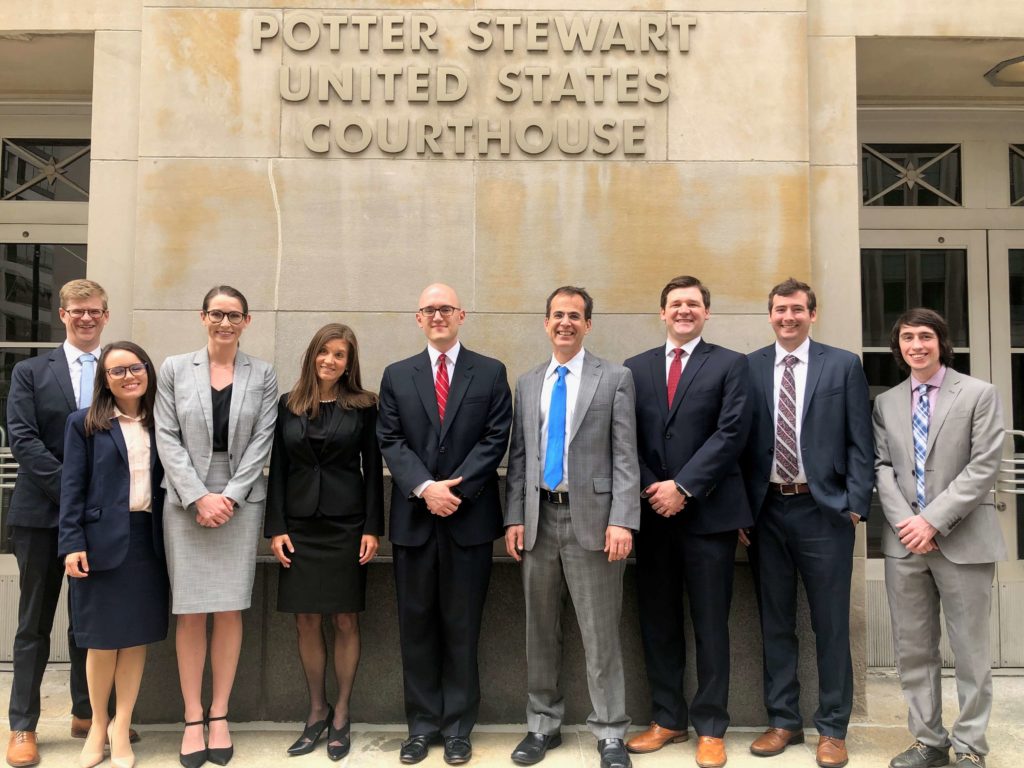Two College of Law students spent their final week of law school arguing a case before the U.S. 6th Circuit Court of Appeals in Cincinnati.
For the last year, students in the College of Law’s Appellate Clinic, led by professors Lucy Jewel and Wade Davies, have been reviewing and preparing the appeal.
In court on April 30, that year of work culminated with third-year students Evan Rothey and Elizabeth Harwood arguing two constitutional issues associated with their client’s trial: the client’s right to cross-examine a key witness; and the client’s right to have a public trial in an open courtroom.
Jewel said the students faced a difficult challenge weaving together the law, facts, and equities of the case. The work is a bit like a slow-moving chess game, she said, as students carefully propose and review arguments and counter-arguments.
“If one is able to effectively argue in front of three federal Circuit Court judges, one can handle almost anything in law practice” Jewel said. “A lot of deep and complicated thinking goes into effective appellate advocacy. Students must communicate on the same level as the judge — a very high standard.”
Harwood and Rothey said they were prepared to spend hundreds of hours researching and writing, and believe this experience has uniquely prepared them to practice law. But Rothey didn’t anticipate how personally invested he would become in the case.
“During our first client meeting, I fully realized that our client was entrusting us with his case,” Rothey said. “It was a healthy reminder and powerful motivator that all of this effort and emotion was first and foremost directed toward serving the client.”
While Rothey and Harwood carried the responsibility of arguing the case before U.S. 6th Circuit Court of Appeals Judges Jeffrey Sutton, Ralph B. Guy, Jr., and John B. Nalbandian, preparing the case was a team effort.
Clinic student attorneys Brooke Heavener and Nicholas Allen served as opposing counsel in preparation for the court appearance, and students Blake Tate, Benjamin Johnson, Benjamin Merry, and William Beasley assisted with preparing oral arguments.
Beasley said he is proud of the work he and his classmates undertook.
“I’ve never been more impressed by my fellow students,” Beasley said. “Their representation of our client, the clinic, and the college was incredible.”
At the conclusion of the students’ arguments in court, Sutton joked with them about their commitment to arguing the case while simultaneously studying for final exams.
“Thank you for your representation of Mr. Stalling,” he said. “Congratulations, great job, and we look forward to you entering the bar before long.”
A recording of the oral argument is available here.
